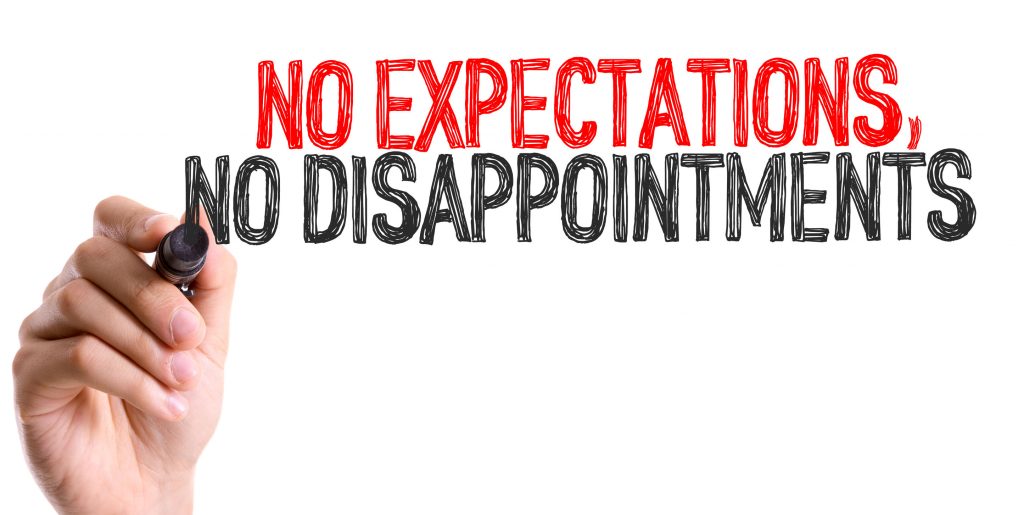The Word “Should” Hurts Us

“My kids should just listen when I tell them to do something.”
“My friend should have called me back last night.”
“I should be able to buy (fill in the blank).”
We all do it! We use the word “should” in our thoughts and language. Often times, we feel justified in what we are thinking and saying, but “should” can cause quite a lot of discomfort, depression, and anxiety, for all of us. When we make these statements, we are focusing on what should or should not be rather than on what it actually is. This often leaves us feeling stuck, angry, and frustrated.
What The Word Should Means
It is amazing how powerful language is! The words we think and say impact how we feel and they impact our relationships. “Should” communicates expectations for behavior of ourselves and others. “Should” communicates expectations for the way things work. Awhile ago my sister told me she heard someone say, “Expectations are resentments waiting to happen.” I would give credit to the statement if I knew who to give credit to :). I do believe the statement is true. Should statements often lead to issues in relationships, and can contribute to anxiety and depression. This tends to happen when the expectations created by should statements meet unforgiving reality and come clashing in.
Should Thinking in Kids
I see people of all ages using should thinking. Younger kids may think kids should always be nice to him/her or they are not likable. In reality, there will always be times others don’t treat us the way we would like to be treated. The way others treat us doesn’t necessarily mean anything about us either. Sometimes people are going through their own “stuff” and for better or worse we get the brunt of their emotions. If a kiddo gets stuck in thinking others should always be nice to him/her they may start to feel bad about themselves. If they are able to think instead that there will likely be times others don’t treat them in kind ways, they can learn how to deal with it. They can learn ways to stand up for themselves and not always take it personally.
Should Thinking in Teens
There are a lot of different ways should thinking shows up in the life of a teen. They may think they should have a girlfriend or boyfriend (and think they aren’t lovable if they don’t). Teens may think they should get certain grades (and if they don’t they aren’t smart). They may think they should have more friends (and if they don’t nobody likes them). You get the idea. If the should doesn’t happen, then there is negative thought to follow. You can see how this can lead to a funky mood. For some of teens this can even be a catalyst for depression and anxiety.
Should Thinking in Adults
In the world of the adult, I often hear shoulds regarding their children or significant other. As parents, we often have an idea of what parenting will be like. Whatever it is we expect, our actual experience is often different. We think we should parent in a certain way, our kids should behave in a certain way, our family should interact in a certain way. When our shoulds don’t match reality, we may get stuck, frustrated, blame ourselves or others, and yes, get stuck in a negative thought spiral.
Regardless of age, it is helpful when we can be aware of how we are thinking and the impact it has on our relationships and mood. There are a lot of times we may not even know we are should thinking. If we can learn to becoming aware of our should thinking and language, we can begin to take the shoulds out of our life. You can replace the word “should” with “I would like it if…” or “It makes me happy when…” or “I feel angry when”….You get the idea. You don’t have to give up your needs and wants, it just helps when you express them differently….
If you or your child needs helps with the shoulds…let us know! We are happy to help…give us a call at 720-583-9332:) Enjoy the rest of your week!
Steffanie
Schedule a FREE Consultation
We believe in an integrative and holistic approach to help you make the changes you want. Contact us now to schedule an appointment or to request a 20 minute free phone consultation. During this session, you will be invited to share your story and ask any questions you may have.
Recent Articles
Identifying Different Parenting Styles
Much like everything in life, there are differences in the way people parent their children. People often want to know…
Signs Someone You Love May Be Hiding Depression
Depression can be scary for many people. Depression can make individuals feel as though they are losing control over their…
Fighting the Good Fight with Couples Therapy
Tension and conflict are normal and even healthy parts of any relationship. Sometimes, tension and conflict work out by itself.…
What Is Family Therapy?
In any family, it is normal to have a certain level of conflict. In fact, conflict might even be healthy…





